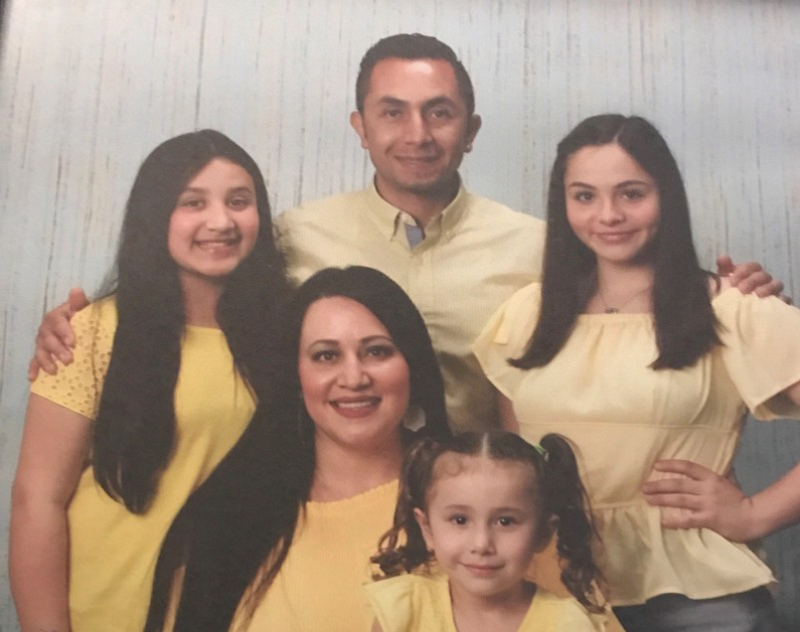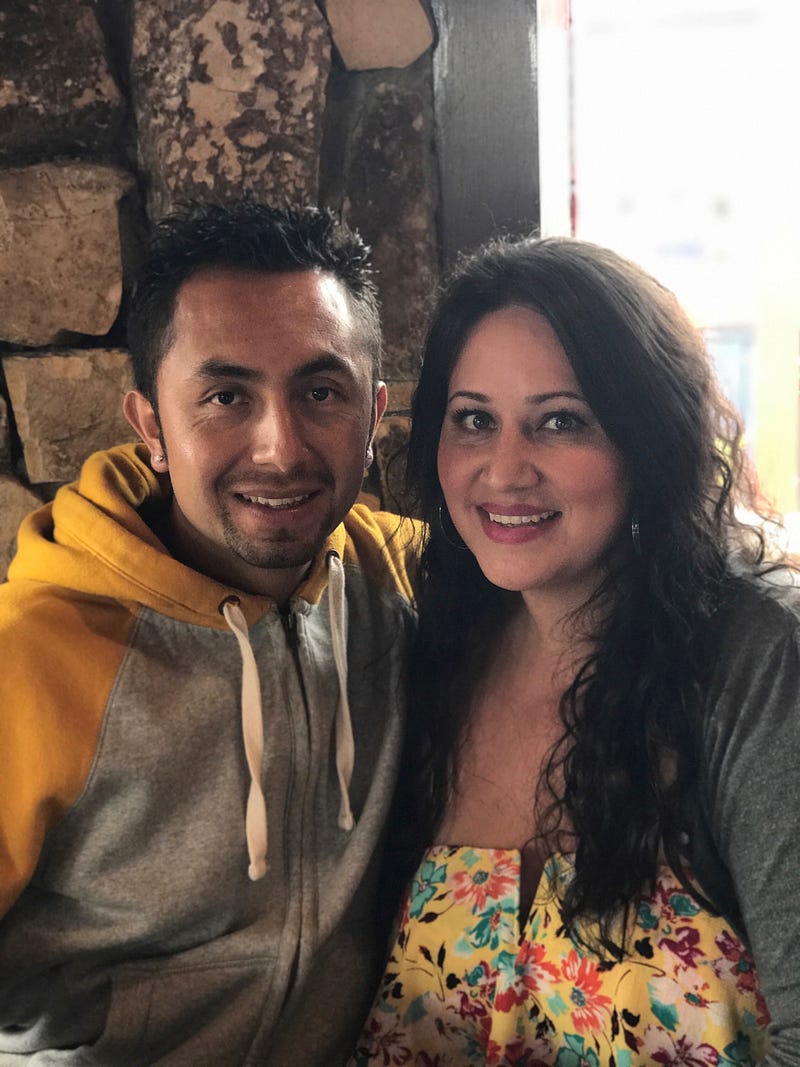by Lourdes Barraza, as told to Cindy Knoebel
Fernando Carrillo came to the U.S. in 2002. He trained to become a cable TV installer. He worked hard, got married. He had children and a good job. Then ICE came calling.

I met Fernando in 2010 in Sacramento through friends. Two years later, we got married. I had two children from a prior marriage that Fernando has completely embraced as his own. And together we have a daughter, Ana Victoria, who is four years old.
October 11th was one of the worst days of my life. That morning, I was driving around San Jose (I am a part-time driver for Uber) when I received a call from a blocked number. Since I was driving, I couldn’t answer it, but when another call came in, I pulled over.
I had a voice mail from Fernando. He had just been picked up by ICE. He kept saying, “Don’t worry, I’m not going to be deported right away; just stay calm.”
I went home immediately and waited for his next call. Then I learned what had happened.
He was taking our daughter to the daycare center when he noticed a couple cars following him. After he dropped her off, he pulled into a shopping center and was immediately surrounded by cars and ICE officers. They took him first into San Francisco and, later that night, to the West County Detention Facility in Richmond.
I was devastated by the conversation — because he’d already been deported once, in 2012. That time, he was picked up on a Friday and transferred to Tijuana on Sunday. I couldn’t believe it could all be happening again.
I told our daughters what had happened and they broke down completely, sobbing. My oldest is taking it the hardest. She’s now on an independent study program because she can barely get up in the morning. I know she needs therapy — we all need therapy — but I can’t afford it. I work on an on-call basis at Santa Cruz Juvenile Hall, so I don’t have regular work hours. I drive for Uber when I can, but it’s tough because now I’m alone and have to take care of all my daughters’ needs without any help at all.
I am completely consumed by fear and anxiety. I worry constantly about how long I’ll be able to keep a roof over our heads. At the same time, I have to be emotionally strong, reassuring and supportive for my husband and family.
The first time I visited Fernando in Richmond, I went by myself. It was a shock. They treat family members as though we’re criminals. I didn’t know I wouldn’t be allowed to have any physical contact; instead, I was separated from Fernando by Plexiglass and I had to speak to him on a phone. It was completely degrading. My husband is not a criminal; he is a kind, loving and responsible man.
We’re only allowed thirty minutes for each visit. During one of my recent visits, they kept me waiting for several minutes. I kept asking what was going on, and was treated very rudely. When they finally brought Fernando out, we only had twenty minutes left. I asked, and was told, that we’d get extra time to make up for the delay. But we didn’t. I was ushered out with everyone else, and when I complained, I was ignored. I also complained to the desk sergeant, who asked, “Why was your husband late?” as if it was HIS fault. The point is, they don’t care. They do as they please.

My husband is still in shock. And afraid — both for himself and for us. He’s frightened he’ll be deported, but he’s also worried about me and the girls and what we’re going through.
Yes, we have a lawyer. But because Fernando has an outstanding deportation order, he didn’t qualify for a bond. We are applying for a withholding against removal and hoping to qualify under CAT (Convention Against Torture). I know he’s afraid to go back to Mexico — he’s spoken to his lawyer about it — but he hasn’t told me why because he doesn’t want me to worry. But the only thing I can think of is that it must be scary if he won’t share details with me.
At this point, he’s at the mercy of ICE. His first ninety days will be up on January 8th. I’m hoping if we provide enough documentation — letters from his employer, family and friends, my daughter’s and my birth certificates, our marriage certificate — he’ll be released into home supervision. That’s what we’re praying for. Once he’s home, we’ll be able to strategize on next steps and prepare for his trial date on February 26th.
If my worst nightmare comes true — if Fernando is deported — I don’t know what will happen to us. My children and I were all born here in the U.S. We could never live in Mexico; I would be terrified for the safety of my daughters.
I have debated whether or not to share our story. For the most part, I wanted to keep such a delicate matter as private as possible because that is just who I am and maybe to some extent, I was embarrassed about having to put myself out there like this. However, after hearing and reading of so many similar stories over and over and over and coming to the realization that we have nothing to be ashamed of, I am taking a deep breath and making the choice to share the heartbreak that my daughters and I are going through.

